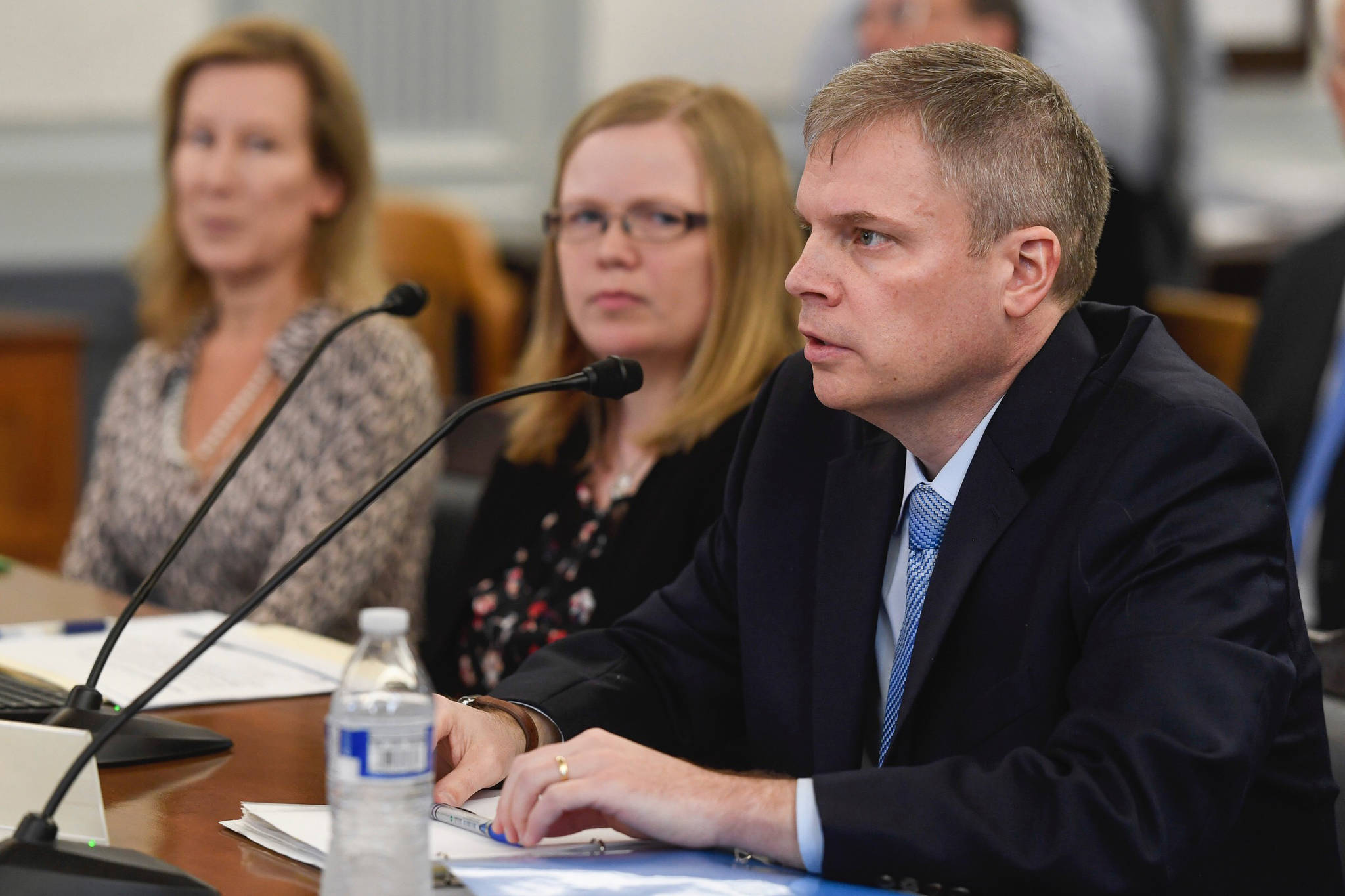Sen. Lyman Hoffman called Gov. Mike Dunleavy’s proposed cuts to education “unacceptable,” setting the tone for the Senate Finance Committee meeting Monday at the Capitol.
The committee went through a budget presentation on the Department of Education and Early Development, grilling members of the Office of Management and Budget, as well as Education Commissioner Michael Johnson.
“It’s one of the key components in the state’s budget that everyone says they support,” Hoffman, D-Bethel, said at the start of the meeting. “The budget reduces (the education budget) by over $300 million. But, to put that into perspective of what is really happening, you’re proposing to cut one fourth of the funds … 25 percent of the budget in education. … From my viewpoint I find that completely unacceptable.”
Sen. Click Bishop, R-Fairbanks, asked OMB Director Donna Arduin how these cuts would improve education outcomes for students.
“We’re doing this because the state is out of money and we need to balance our budget,” Arduin said. She explained how additional education funding in the current year was allocated from the Constitutional Budget Reserve and that can no longer happen. “We’re proposing this so we can get our budget and our fiscal house in order.”
Bishop responded saying, “With all due respect ma’am, that’s the wrong answer.”
[High school robotics team advances to Worlds competition]
Rep. Bill Wielechowski, D-Anchorage, asked Johnson if the state board of education had made a statutorily required recommendation on the proposed budget. Johnson said the board had tabled this decision. The education commissioner is selected by the state’s board of education, not appointed by the governor.
Sen. Natasha Von Imhof, R-Anchorage, explained how spending has increased but the number of students has decreased since 2006. She said most of that is going toward employee benefits. In 2006, the state spent $302 million on benefits and in 2017 the state spent $596 million on employee benefits, a 97 percent increase. Imhof said 2017 was the most recent figures available.
“Districts are spending less on books and curriculum and more on health care for their teachers. No fault, it just is what it is,” Von Imhof said. “So rather than just making a big cut across the board, say all 53 districts. ‘You’re your own.’ Maybe a better approach might’ve been let’s help you with our highest cost driver and see if we can as a state come up with a solution that makes sense that helps everybody. I’m not really hearing that. I think that’s a problem.”
Arduin responded saying the OMB does not have control over school districts and how they spend money.
Hoffman told Johnson that Von Imhof makes a strong case that the administration is not coming forward in a constructive manner in order to address education problems.
“It’s not always about the checkbook,” Hoffman said. “It can’t be only about the checkbook.”
Hoffman recommended Johnson fulfill his statutory obligation and bring his board together and make a recommendation on the education budget, rather than hide behind the Legislature and wait for it to make changes to the budget.
“That is what the people of Alaska expect you to do, is to defend and preserve education for all the students of the state,” Hoffman said to Johnson.
Toward the end of the meeting, Mike Barnhill, a policy analyst at the OMB, said he would like to say he was happy to be at the finance meeting but that would not be true.
“I think the conversation that just happened is incredibly important to Alaska,” said Barnhill. “There is literally no plan we can put before this committee to which there is some element, someone won’t hate.”
The Senate Finance Committee will continue its review of the budget by department throughout the week.
• Contact reporter Kevin Baird at 523-2258 or kbaird@juneauempire.com. Follow him on Twitter at @alaska_kev.

